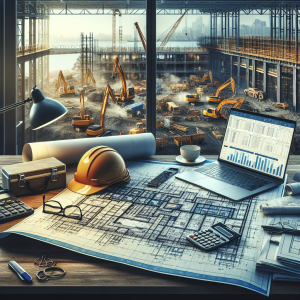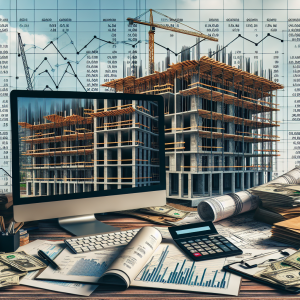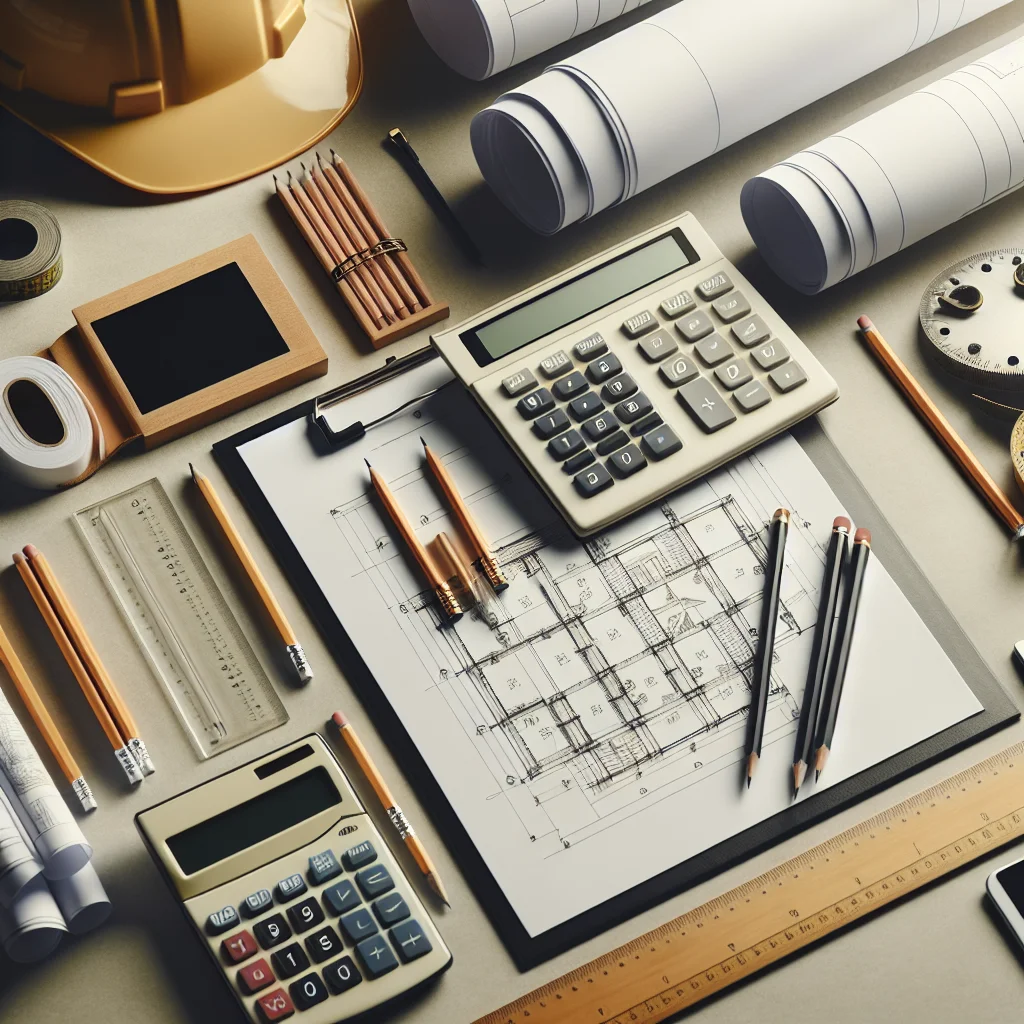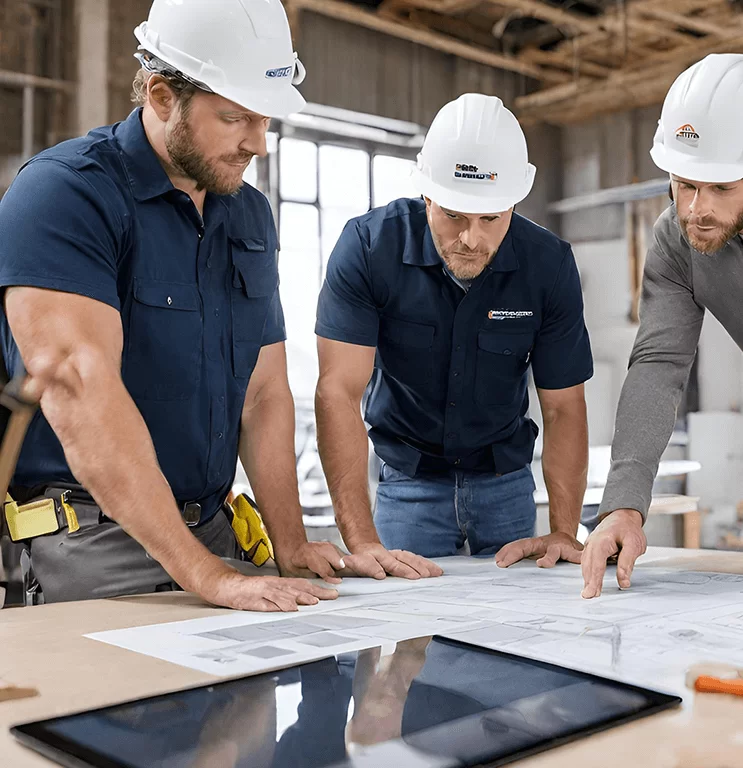Building your dream home or embarking on a renovation project can be an exciting time, but it can also be daunting when it comes to estimating the costs involved. From blueprints to budgets, the process of estimating building costs can seem overwhelming, but it doesn’t have to be. With the right tools and knowledge, you can estimate building costs like a pro and avoid costly surprises along the way. In this article, we’ll explore the essential steps to take when estimating building costs, including breaking down the various components of a construction project, understanding the factors that can impact costs, and using online resources to get accurate estimates. Whether you’re a seasoned builder or a first-time renovator, our tips and tricks will help you navigate the often-complicated world of building costs with confidence. So, sit back, relax, and let’s get started!
The Importance of Accurate Cost Estimates
Before starting any construction project, it’s essential to have a clear understanding of the costs involved. Accurately estimating building costs is crucial to ensure that you have the necessary funds to complete the project without any surprises along the way. Proper planning and budgeting can also help you avoid costly delays and setbacks.
One of the most significant benefits of accurate cost estimates is that they can help you avoid overspending. By having a clear understanding of the costs involved, you can set a realistic budget and stick to it. This will help you avoid incurring debt or running out of funds midway through the project.
Another benefit of accurate cost estimates is that they can help you make informed decisions about the project’s scope and timeline. By knowing the costs involved, you can decide which aspects of the project are most important and make adjustments accordingly. This can help you prioritize your spending and ensure that you get the most value for your money.
Understanding Building Blueprints and Plans
Once you’ve decided to embark on a construction project, the first step is to create a detailed blueprint or plan. This will help you visualize the final product and ensure that all aspects of the project are accounted for.
Understanding building blueprints and plans is essential when it comes to estimating building costs. You’ll need to know the exact measurements of each room, the number of windows and doors, and the materials that will be used. This information will help you estimate the amount of material needed and the cost of each component.
It’s also important to consider any unique features or challenges of the project. For example, if you’re building on a sloped lot, you’ll need to factor in the cost of excavating and leveling the land. Similarly, if you’re planning to include a swimming pool or other water feature, you’ll need to account for the cost of installation and maintenance.
Factors That Affect Building Costs
There are several factors that can impact the cost of a construction project. Understanding these factors is essential when it comes to estimating building costs and creating a realistic budget.
One of the most significant factors that can impact building costs is the location of the project. Construction costs can vary widely depending on the region, city, or even neighborhood where the project is taking place. Factors such as labor costs, material availability, and building codes can all impact the final cost of the project.
Another factor to consider is the size and scope of the project. Larger projects will generally require more materials and labor, which can drive up costs. Similarly, projects that require specialized skills or equipment can be more expensive to complete.
Finally, it’s important to consider the quality of materials and finishes that will be used. Higher-end materials and finishes will generally be more expensive than their lower-end counterparts. However, they may also last longer and require less maintenance over time.
Estimating Material Costs
One of the most significant components of building costs is the cost of materials. Accurately estimating material costs is essential when it comes to creating a realistic budget.
To estimate material costs, you’ll need to know the exact specifications of each component of the project. This includes everything from the type of lumber used in framing to the brand and model of appliances. Once you have this information, you can research the cost of each material and create a detailed list of expenses.
It’s important to remember that material costs can vary widely depending on the region and the quality of the materials used. Be sure to research multiple suppliers and compare prices to ensure that you’re getting the best value for your money.
Estimating Labor Costs
Another significant component of building costs is the cost of labor. Estimating labor costs can be more challenging than estimating material costs since labor rates can vary widely depending on the region and the skill level of the workers.
To estimate labor costs, you’ll need to know the amount of time required to complete each aspect of the project. This includes everything from framing to electrical work to painting. Once you have an estimate of the number of hours required, you can research the average hourly rate for workers in your area and calculate the total cost of labor.
It’s important to note that labor costs can also be impacted by the complexity of the project. Projects that require specialized skills or expertise will generally be more expensive to complete.
Additional Costs to Consider
In addition to material and labor costs, there are several additional costs to consider when estimating building costs. These include:
– Permit fees: Many construction projects require permits from local or state authorities. Permit fees can vary widely depending on the region and the type of project.
– Insurance: Construction projects may require specialized insurance to protect against accidents or damage to the property.
– Utilities: During the construction process, you’ll need to pay for utilities such as water and electricity.
– Waste removal: Construction projects generate a significant amount of waste, which will need to be removed and disposed of properly.
Be sure to consider these additional costs when creating your budget to avoid any surprises down the road.
Creating a Detailed Budget
Once you’ve estimated all of the costs involved in your construction project, it’s time to create a detailed budget. Your budget should include all of the costs discussed above, as well as a contingency fund for unexpected expenses.
It’s important to be realistic when creating your budget. Don’t underestimate the costs involved, as this can lead to unexpected expenses down the road. Instead, build in a buffer to account for any unexpected expenses that may arise.
It’s also important to review your budget regularly throughout the project. As the project progresses, you may need to make adjustments to your budget to account for any unexpected expenses or changes to the scope of the project.
Tools and Resources for Estimating Building Costs
Estimating building costs can be a complex process, but there are several tools and resources available to help simplify the process. These include:
– Online cost calculators: Many websites offer cost calculators that can help you estimate the costs involved in your construction project.
– Construction cost databases: Several databases provide information on the average costs of construction projects in various regions and cities.
– Professional estimators: If you’re embarking on a large or complex project, consider hiring a professional estimator to help you create a detailed budget.
Tips for Staying Within Budget
Staying within your budget can be a challenge, but there are several tips and tricks that can help you avoid overspending. These include:
– Prioritizing your spending: Identify the most important aspects of the project and allocate your funds accordingly.
– Shopping around: Research multiple suppliers and contractors to ensure that you’re getting the best value for your money.
– Being flexible: Consider making adjustments to the scope of the project if necessary to stay within your budget.
– Building in a buffer: Include a contingency fund in your budget to account for unexpected expenses.
Conclusion
Estimating building costs can be a daunting process, but with the right tools and knowledge, you can do it like a pro. By breaking down the various components of the project, understanding the factors that can impact costs, and using online resources to get accurate estimates, you can create a detailed budget and avoid any surprises along the way. Remember to be realistic when creating your budget, and review it regularly throughout the project. With these tips and tricks, you’ll be well on your way to completing your construction project with confidence!
As construction technology advances, so does the future of estimating in the construction industry, moving towards more efficient and convenient methods. Nowadays, for building cost estimator UK, house construction cost, there are digital tools such as software that make the estimation process quicker and more accurate, which is becoming increasingly relevant for professionals and businesses. This trend makes learning about cost estimating essential for those in the Construction industry, regardless of experience, and understanding the skills required to undertake this role – such as identified in what a cost estimator does, will help pave the way to pursuing a career in this field.
Building Cost Calculators:
To get accurate, up to date construction costs, use our FREE Building Cost Calculators:



